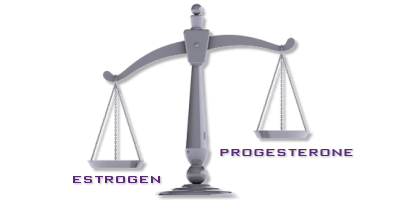LOW PROGESTERONE LEVELS
There’s a rising trend in low progesterone levels, influenced by various contributing factors, including:
- Insulin Resistance (IR)
- Endocrine Disruptors
- Stress
- Defective Luteal Phase (in women only)
- SAD (seasonal affective disorder)
- Oral Contraceptives
- HRT
- Large Carbohydrate Meals
Insulin Resistance
Approximately 25-80% of the population experiences insulin resistance (IR), notably contributing to fatigue and weight gain. In women, this condition impacts ovarian function, leading to anovulation and fluctuations in progesterone levels. To restore normal ovarian function, it is essential to reverse insulin resistance. For further information, please refer to the sections on Polycystic Ovary Syndrome (PCOS) and the Menstrual Cycle.
Endocrine Disruptors
There are more than 100 known endocrine disruptors, the majority of which mimic estrogen in their effects. Disturbingly, these substances are now present in our food, air, water, skincare products, plastics, and more. This leads to increased cellular division in humans and animals in tissues sensitive to hormones. While definitive conclusions are still pending, numerous studies are now demonstrating their impact. Elevated levels of estrogen can inhibit progesterone.
Stress
Stress impacts everyone and adversely influences our health. Dr. Hans Selye conducted the initial comprehensive study on stress, uncovering three successive stages in the body's response to it.
- alarm
- resistance
- exhaustion
Exhaustion impacts our adrenal glands, immune system glands, thymus, and lymphatic system, resulting in various effects across the body that contribute to numerous contemporary degenerative diseases. The adrenal glands produce more than 70 hormones; however, when they are fatigued, they struggle to meet the body's demands, leading to decreased levels of certain hormones. One unavoidable outcome is low progesterone, which occurs partly due to elevated levels of two hormones: cortisol and adrenaline. These stress hormones inhibit progesterone production.
If you have any questions about Natpro Progesterone Cream
A Defective Luteal Phase (in women)
This issue is increasingly impacting women every day, due in part to:
- insulin resistance
- endocrine disruptors
- stress
- oral contraceptives
- HRT
Following ovulation, the corpus luteum produces progesterone, a process that typically lasts for 14 days. However, when progesterone levels decline prematurely, it can result in spotting occurring a few days prior to the onset of the full menstrual period. This situation can contribute to challenges in achieving pregnancy and increase the risk of miscarriages. To counteract low progesterone levels, supplemental progesterone can be administered during the final 14 days of the cycle.
SAD (seasonal affective disorder)
Seasonal affective disorder (SAD) arises from the prolonged nights typical in higher latitudes. A common treatment involves using artificial lighting to help sufferers increase their exposure to daylight. Studies have shown that these extended nights lead to a reduction in progesterone levels in the bloodstream.
For centuries, individuals have thrived in high latitudes without experiencing this condition. So why is it becoming an issue now? Some evidence suggests a link between the prevalence of the disorder and the increase in
environmental
estrogens. Progesterone serves as a potent antagonist to estrogen.
Oral Contraceptives
All drug-based oral contraceptives inhibit ovulation. Ovulation is the process during which the ovaries produce progesterone. By preventing ovulation, the surge of progesterone typically observed in the luteal phase does not occur, resulting in hormone levels remaining consistent with those of the follicular phase. The minimal progesterone that is present is generated by the adrenal glands, brain, and glial cells. Under stress, the adrenals can decrease progesterone levels even further. Additionally, all oral contraceptives induce insulin resistance, which further suppresses ovarian function.
HRT
Naturally low levels of progesterone are frequently observed in postmenopausal women. While hormone replacement therapy (HRT) is commonly recommended, it features the same synthetic hormones found in contraceptives, albeit in lower doses. Synthetic estrogen can inhibit progesterone production. Furthermore, the progestin in HRT is not a true replacement for progesterone, as it is synthetic in nature. Postmenopausal women continue to be exposed to the same endocrine disruptors as the general population, which exacerbates elevated estrogen levels. Additionally, HRT can induce insulin resistance, resulting in a slower metabolic rate.
Large Carbohydrate Meals
Research indicates that progesterone levels tend to decline following a substantial meal rich in refined carbohydrates. Specifically, refined carbohydrates like sugar and wheat trigger a rapid decrease in blood sugar levels. This, in turn, leads to a surge in adrenaline, prompting the storage of sugar in the body's cells, particularly the liver. Consequently, this sugar is released back into the bloodstream, elevating the levels once more. As the sugar diminishes, it is substituted by water, resulting in bloating and potential weight gain.
Progesterone is unable to enter the nucleus of cells if there is insufficient sugar or an excess of sugar present, leading to an exacerbation of symptoms associated with progesterone deficiency.

